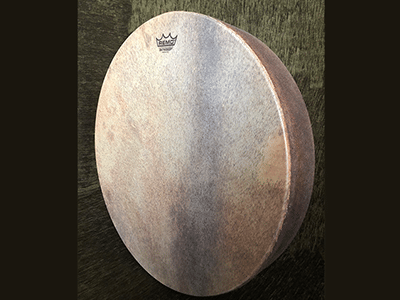The Art of Singing: Seven Classical Melodies- One Year Program – Melody Two: ‘Ajam
USD$99.00
- Teachers: Ustadh Muhammad Shaheed Carter & Ustadha Raneem Mohammad Ghazzawi
- Course Duration: 5 Weeks
- Start Date:
Ladies: Saturday, 23rd January
Men: Saturday, 17th January - Time:
Men: 4:00 pm UTC/GMT
Ladies: 4:00 pm UTC/GMT - About the Course: An introductory course to the art of singing Islamic odes.
- Gift this course to your loved one
The Art of Singing: Seven Classical Melodies- One Year Program
Ustadh Muhammad Shaheed Carter
Ustadha Raneem Mohammad Ghazzawi
الَّذِينَ آمَنُوا وَتَطْمَئِنُّ قُلُوبُهُم بِذِكْرِ اللَّهِ ۗ أَلَا بِذِكْرِ اللَّهِ تَطْمَئِنُّ الْقُلُوبُ – 13:28
An exciting opportunity to delve into the world of inshad (Islamic musical odes) and cover the seven classical maqams (musical melodies or tunes).
The seven classical Eastern tunes are encapsulated in a famous saying:
صنع بسحر
Made by magic
These seven letters represent the names of each of the melodies:
-
صبا Saba
-
نهوند Nahawand
-
عجم ‘Ajam
-
بيات Bayat
-
سيكا Sika
-
حجاز Hijaz
-
رست Rast
These famous seven melodies make up the vast majority of qasidahs and nasheeds (odes) in the Islamic musical tradition. This one-year program will cover an introduction to the seven maqams. It will be divided into 7 mini-courses of 5 weeks each. Each mini-course will focus on one maqam, covering 7 well-known qasidahs in that maqam. At the end of the program, students will have been trained on 50 qasidahs ranging the seven maqams. Instructors will train students during the live classes on the singing of these qasidahs through the time-tested technique of listening and correcting the students delivery in small group settings.
Mini Course Two:
Second Maqam: ‘Ajam
At-A-Glance
- Learn the maqam of Ajam in a small group setting with a trained and seasoned instructor
- 7 well-known qasidahs in this maqam that are used in mawlids around the world
- step-by-step instructions on how to sing within tune and hit the correct notes and master the rhythm
- meanings of the qasidahs offered through translations of portions of the lyrics from Arabic to English
- weekly pre-recorded renditions of the qasidahs with PDF lyrics for students to download and practice before the live session
About the course
In this course, students will be provided with a traditional introduction to the art of singing. Throughout the term, students will condition their vocals with simple techniques and in doing so, will construct for themselves a solid foundation by which they can continue further along the path of singing. Practicing nasheeds increases the love of Allah (Glory be to Him) and the Prophet {Allah bless him and give him peace} in one’s heart. Qasidas are also a form of dhikr and they enlighten the heart and soul by the remembrance of Allah and the Prophet. Every student will not only benefit intellectually and skillfully from this course, but also spiritually, and will Inshallah nurture the love of singing in their hearts for decades to come.
Course format
This mini-course runs for five weeks. Classes will be taught weekly. Students are expected to listen to the recordings and practice on their own each week before the Live Session. The live lesson shall be your chance to practice directly: students shall sing to, and receive instruction from the instructor in small group settings.
Each Live session will be from 30 minutes to one hour in length, depending on the number of participants in that section.
Week 1: ‘Ain al ‘uyun عين العيون
Week 2: Hal taqbalooni هل تقبلوني
Week 3: Ramadanu tajalla رمضان تجلى
Week 4: Wallahi bi suhbatihi fuzna والله بصحبته فزنا
Shahru rabi’ شهر الربيع
Week 5: Ya kawkb al asri يا كوكب العصر
Eihi naseem alas-har ايه نسيم الأسهار
Weekly Time Commitment
Students are expected to listen to the recordings and practice on their own each week before the Live class.
Suggested readings
The course material shall include the written text and the audio recordings of the nasheeds, as well as portions of the translations to assist with understanding the meanings.
| Group | Male (4:00 PM GMT/UTC Saturdays), Female (4:00 PM GMT/UTC Sundays) |
|---|



